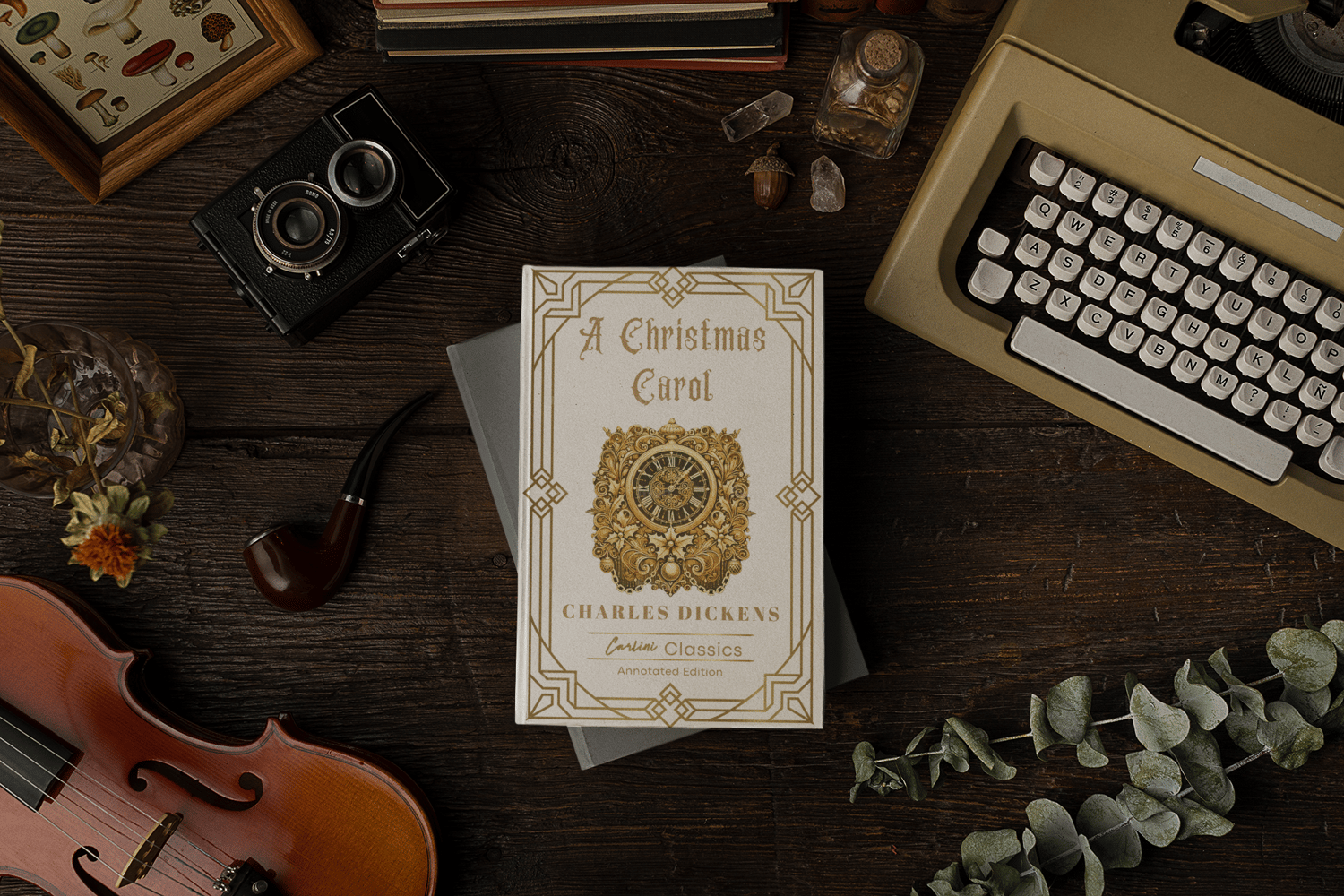Ah, A Christmas Carol. That classic holiday tale we all know and love, where Ebenezer Scrooge learns the true meaning of Christmas, gains a whole new attitude, and—spoiler alert—stops being the Grinch of 19th-century London. It’s a story of redemption, generosity, and ghosts, but when you really dig into it, there’s something a little... weird about this whole Christmas transformation. Sure, it’s heartwarming and all, but let’s be honest, it’s more of a lesson in personal growth than in holiday spirit.
So grab your copy, get comfy by the fire (or your closest radiator, depending on where you live), and let’s dive into the bizarre, slightly dysfunctional world of A Christmas Carol.
Scrooge: The Original "Workaholic with Zero Boundaries"
Let’s start with Ebenezer Scrooge, our main man (or should I say, main miser). If you thought The Office’s Michael Scott was bad with his micromanagement, Scrooge is in a league of his own. This guy is obsessed with money, but not in the “I want to be rich” way. No, Scrooge is the petty, miserly kind of wealthy. He’s the guy who tells his employees to work on Christmas Eve, not because it’s necessary, but because he can. His relationship with money is less “wealthy businessman” and more “crazy uncle hoarding pennies in his basement.”
And when Scrooge is visited by the ghost of his old partner, Jacob Marley (who is literally dragging around chains made of cash boxes and ledgers), you can’t help but wonder: What kind of work-life balance does Scrooge have? Spoiler alert: None.
The Ghosts: Your Personal HR Department for Poor Life Choices
Now, Scrooge’s night of life-altering epiphanies begins with the arrival of the ghosts of Christmas past, present, and future. If you’re like me, you’d probably expect these visits to be more along the lines of “here’s a holiday playlist” or “let’s bake cookies,” but nope—Scrooge’s ghostly guides are all about showing him his flaws.
First up: the Ghost of Christmas Past. Imagine going through your entire childhood in 15 minutes. That’s what happens when this spirit rolls through. He takes Scrooge on a tour of his early life—his lonely school days, his questionable relationship choices, and that one Christmas he chose work over family (which is probably why he’s so alone and bitter now). If this were today, that’s the kind of thing you’d only revisit in therapy, not in ghostly visions.
Then comes the Ghost of Christmas Present, who shows Scrooge what’s going on right now. And this spirit doesn’t pull any punches. He shows Scrooge that while he’s busy hoarding his wealth, Tiny Tim—his underprivileged nephew’s son—can barely walk, and his family is struggling. Christmas Present’s job is basically to guilt trip Scrooge into being less of a jerk. No small feat, considering the guy can’t even muster up a decent feeling about Christmas without a direct confrontation from a ghost.
Finally, the Ghost of Christmas Yet to Come (aka The Grim Reaper in a snazzy cloak) shows Scrooge what happens if he doesn’t change: He dies alone, unloved, and no one bothers to attend his funeral. At this point, you can almost hear the ghost saying, “Look, dude, I’m not telling you this to scare you. I’m telling you this because no one will even steal your stuff when you’re gone.”
The Ghosts Are Like Unpaid Interns, Except They Make You Cry
These ghosts aren’t messing around. Imagine having your entire life evaluated by a bunch of supernatural beings who have no problem pointing out your worst qualities. I mean, these guys are supposed to be helping Scrooge find redemption, but really, it’s like they’re just reading his personal review on Yelp. “Scrooge: 1 Star. Very greedy. 0 empathy. 0 festive spirit.”
Honestly, the whole thing kind of reads like the ultimate “self-help” book—only it’s delivered by a bunch of dead guys with weird powers. If Scrooge was any other person, he might’ve just walked out of the experience thinking, “What exactly do I owe these ghosts for the emotional labor they just did?”
Tiny Tim: The Most Guilt-Inducing Character of All Time
One of the most famous aspects of A Christmas Carol is Tiny Tim, the sweet, sickly child of Scrooge’s underpaid employee, Bob Cratchit. Every time Tiny Tim says, “God bless us, everyone,” it’s basically the literary version of “please feel bad for me, I can’t walk and it’s Christmas.” You can’t help but feel for the kid, but also—who thought it was a good idea to make him the poster child for guilt?
The whole Tiny Tim situation is so over-the-top that it’s like Dickens said, “Let’s make everyone feel awful about not helping the poor by creating the sickliest kid ever.” Tim’s limp and constant health issues are like a constant reminder to Scrooge (and to us, the reader) that maybe, just maybe, a little bit of compassion wouldn’t hurt.
The Redemption: How to Pull Off a Total Personality Makeover in One Night
Now, we all know the big twist. After seeing all of this, Scrooge wakes up on Christmas morning, a changed man. He becomes generous, loving, and suddenly rich in spirit (and also with some cash, because he literally buys his way into redemption). He gives the Cratchit family a huge feast, buys Tiny Tim the best healthcare plan of all time, and shows up to every family gathering like the kind of relative everyone wants to invite.
But here’s the thing: It’s not just the Christmas spirit that changes Scrooge—it’s the ghosts who do the real work. Scrooge is manipulated into changing his ways in about 24 hours. No self-discovery or slow, gradual improvement here—just a series of “wake-up calls” that ultimately leave him a better man by the end. In a way, he’s like that person who makes New Year’s resolutions they can’t keep... except he manages to nail it by the end of one night.
Final Thoughts: A Christmas Carol—More Than Just a Christmas Story
While A Christmas Carol is undeniably heartwarming, it’s also a masterclass in personal growth (albeit a super intense one). Scrooge’s transformation isn’t just about becoming a nicer person for Christmas—it’s about facing the consequences of his actions and realizing that being rich in spirit (and not just in money) is what really matters. So maybe, this year, instead of focusing on all the material stuff, we should all take a page out of Scrooge’s book and make some room for a little personal development ourselves. Maybe just—you know—without the creepy ghosts and emotional breakdowns.
Merry Christmas, everyone!


